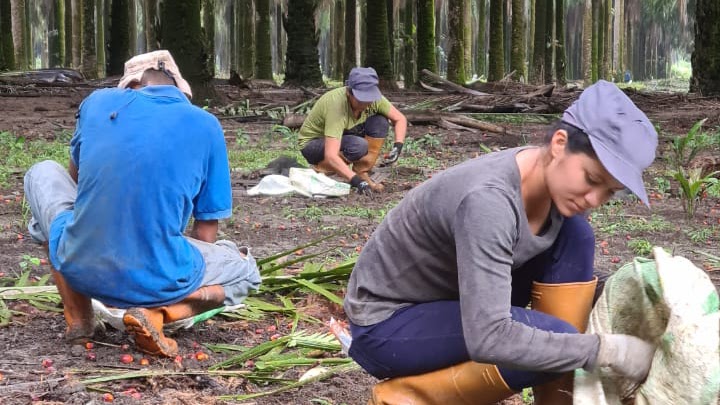This new initiative seeks to generate disruptive innovations and inclusive dialogues that will change and strengthen the situation of producers and workers in both sectors in the country.
RECLAIM SUSTAINABILITY! in the Honduran coffee sector
In coffee, the programme will focus on two strategic priorities: fair value distribution in the coffee value chain and social and gender inclusion.
“We have made progress, particularly at the policy level in the Honduran coffee sector. However, today, coffee smallholders in the region are still struggling to survive and to achieve their life goals, due to market conditions and climate change,” said Michaelyn Baur, Solidaridad’s director for the Central American region.
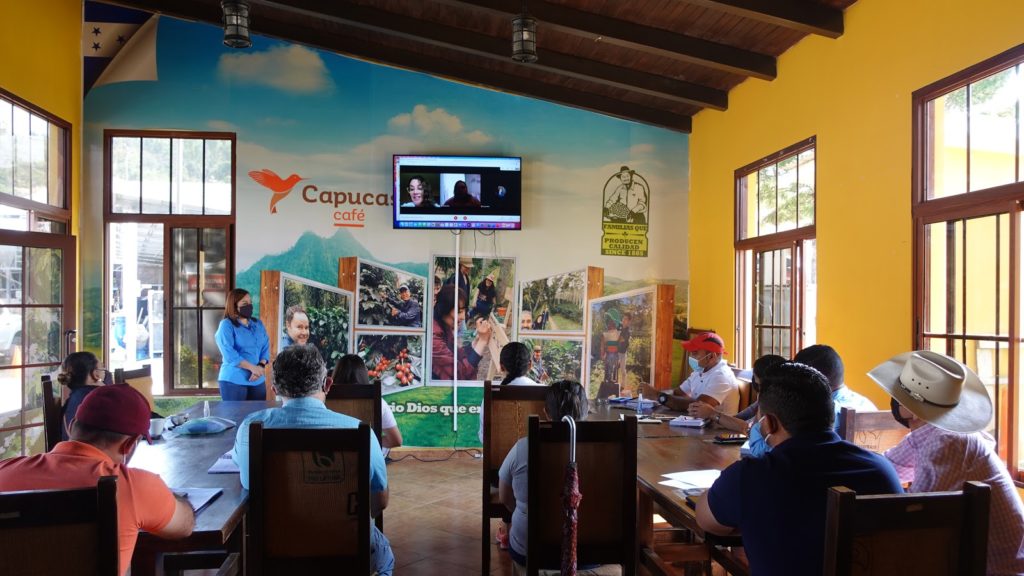
In consortium with Fairfood, Solidaridad will pilot the use of TRACE, a blockchain-based tool, to develop a traceability model for the sector.
“Transparency is a key issue in this programme. We are happy to establish this partnership with the Cooperative and also to work with the key national stakeholder partners to influence the country’s policy agenda and achieve a better positioning of coffee producers, especially women producers,” said Sofía Núñez, Solidaridad’s coffee officer in Honduras.
The tool will connect those involved in Capucas Cooperative’s coffee value and supply chain, demonstrating compliance at each stage of the process: each producer on their farm, in the coffee mills, during export, up until the coffee reaches the final consumer.
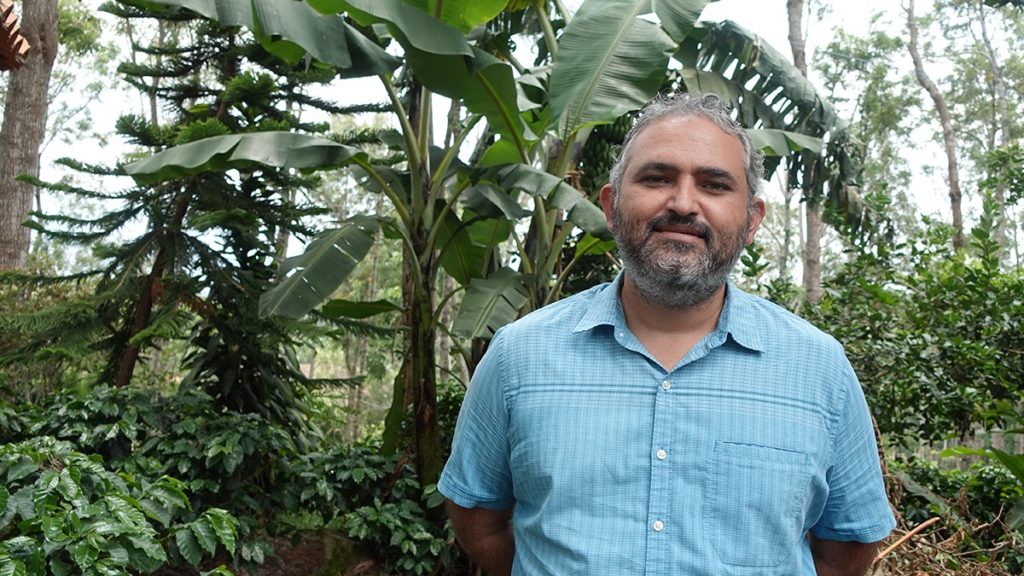
This model will allow better control of the processes, to optimize resources and guarantee the fair distribution of economic resources throughout the coffee chain.
We are very interested in transparency: enabling the producer to see how their coffee is sold, what it means to sell that coffee and to whom it is sold. We are also interested in the foreign market and to continue building solid long-term commercial relationships for producers.
Omar Rodríguez, General Manager of the Capucas Cooperative
The pilot will then serve to present results at the platform level, through the Sustainable Coffee Platform in Honduras to promote the use of the tool at the sector level.
“This year, we expect to begin adapting to the use of the tools and begin raising awareness among the producers of what the project entails. We have great expectations for this new relationship with Solidaridad. The experience and knowledge already gained will facilitate moving towards what we all strive for: well-being for the producer families,” continued Mr. Rodríguez.
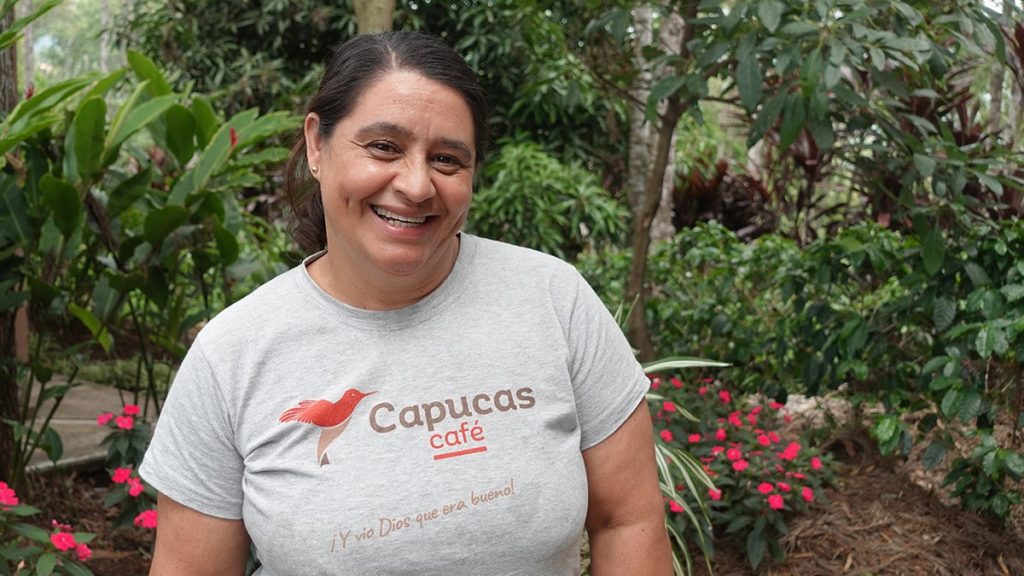
“The value of transparency is becoming increasingly more clear. What we can really do here, is proof that it adds value to all actors in the supply chain – not in the very least farmers. Through projects like these, we can inspire more companies to make change happen,” said Sander de Jong, Fairfood Director.
RECLAIM SUSTAINABILITY! in the Honduran palm oil sector
In the palm sector, RECLAIM SUSTAINABILITY! will focus on decent work and social and gender inclusion as strategic priorities.
One of the programme’s expected outcomes is the development of a decent work model incorporating social and gender inclusion for the sector. Solidaridad will also strengthen the capacities of stakeholders in the sector to promote decent work.
“We have worked in Honduras for almost 11 years on sustainability and the transformation of the palm oil value chain, but there is still much to do. Our work through MAPA and the RSPO standard has created a significant foundation for us to move forward with the new agenda items”, said Michaelyn Baur, during the launch event.
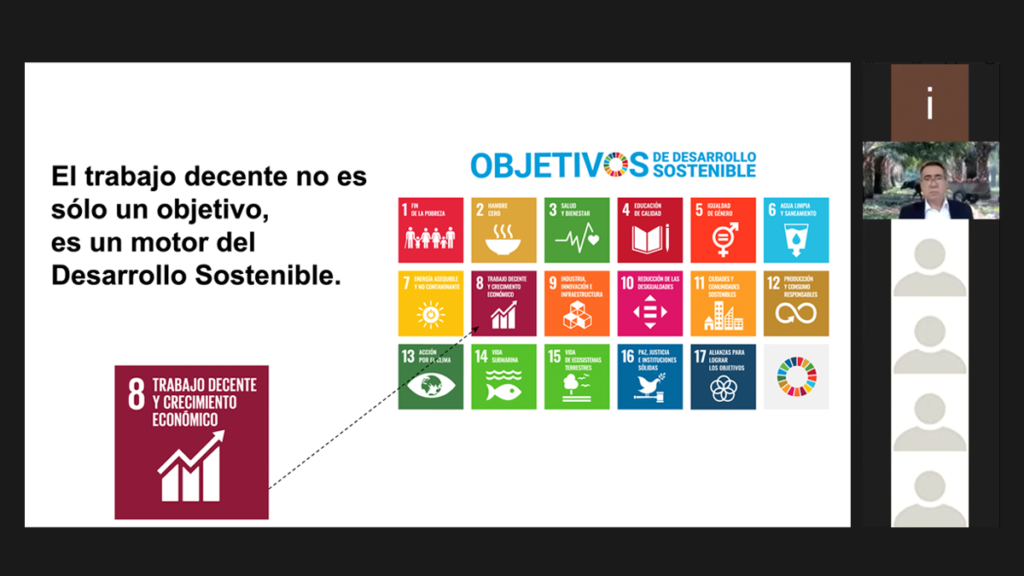
Decent work is an important part of the Sustainable Development Goals. It is the basis of a just and intimately binding economic system.
“With this programme, we seek to improve the social performance of companies and producer organizations; managing ethics, transparency and good reputation in reference to the legal framework and the national interpretation of the Roundtable for Sustainable Palm Oil (RSPO) standard for Honduras. We implement our projects under a platform model that facilitates dialogue, periodic review of progress and collective decision-making,” said Flavio Linares, Solidaridad’s technical director of programmes in the region.

